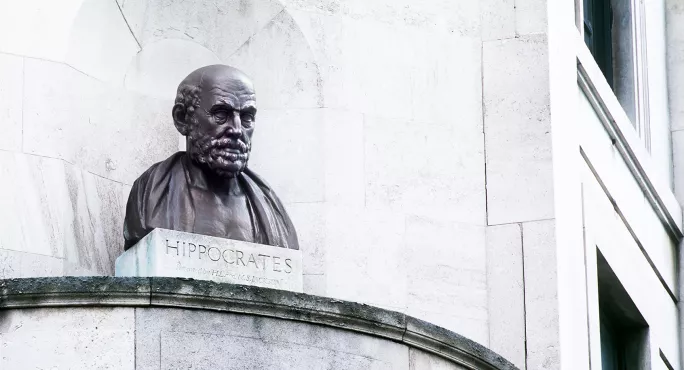Why teachers should have their own Hippocratic Oath

Public servants in other sectors already swear oaths - so why not teachers?
Scottish police constables, for example, declare and affirm that they will discharge their duties with fairness, integrity, diligence and impartiality while upholding human rights. The Nolan Principles apply to UK public office holders, and Scotland has similar versions. The General Teaching Council for Scotland (GTCS) does, of course, have a set of “professional values”, although their selection has been questioned.
The best known oath of all is perhaps doctors’ Hippocratic Oath, based on the principle of “first do no harm”. The World Medical Association’s shortened version of the original oath retains that core element: the health and wellbeing of patients being of primacy.
More from Tes Scotland:
- Additional support needs: Inclusion failure “risks a return to an institutional model”
- Long read: Who decides if student teachers are up to the job?
- Quick read: More data could mark a “refreshing” change for Scottish education
There is a strong case for a teachers’ oath, through which the profession would make clear whom it serves first: children. The ongoing Scottish Child Abuse Inquiry (SCAI), as well as recent accounts of safeguarding mishandling, shows that this seemingly obvious principle has not always been evident in practice. Not everyone operates in good faith, and the SCAI has been a stark reminder of that. And we should not be so complacent to think that the dark episodes exposed by the inquiry could only have happened in the past.
These are essential questions to answer first:
- Does the teaching profession need an oath?
- What should be in an oath?
- How would the profession implement an oath?
I have always said that the vast majority of children get on fine in Scottish schools. However, when the wheels come off, they really come off. A common denominator in cases where we do not “get it right for every child” (to paraphrase the policy and principle now supposed to underpin Scottish education) is the involvement of children with vulnerabilities and additional needs.
Of course, sometimes mistakes happen; sometimes resources or effective training are just not there Sometimes, however, there are those who simply should not be in the profession, and this should not be covered up. “Reputation protection” and “career protection” must not come above child protection.
Teachers asserting their professionalism
A teachers’ oath would affirm, as an absolute priority, that teachers must deliver for children in our care. Existing measures have not always been enough to prevent abuses. And who could object to such an assertion of professionalism and declaration of support to the children we serve?
Teachers, perhaps through unions and self-starting collaboratives, could develop and affirm an oath. Organised, progressive professions can fuel improvement in enlightened societies. While the Scottish government kicks the United Nations Convention on the Rights of the Child (UNCRC) legislation down the road, teachers setting up an oath could be a strong message to the world of our collective desire to ensure children’s rights have primacy.
An oath may also help teaching to counter naysayers and media critics who fail to see heroic and humanitarian work by most members of the profession in often trying circumstances. The oath could cement and communicate teachers’ clear vision: children first, progressing just approaches and/or democratic, humanitarian and liberating aspects of what the profession is for. We teach about myriad rights in social, economic, legal, democratic and other domains, but a teachers’ oath would explicitly affirm children’s rights.
An oath would also elevate Scottish teaching’s professionalism alongside other noble public service professions. What’s more, a teachers’ oath formed in Scotland, with international resonance, could put Scottish teaching on the education map in protecting and promoting children’s rights.
Neil McLennan is a teacher, an academic, an independent councillor in Moray and an advocate of national reform on child protection and whistleblowing
Register with Tes and you can read two free articles every month plus you'll have access to our range of award-winning newsletters.
Keep reading with our special offer!
You’ve reached your limit of free articles this month.
- Unlimited access to all Tes magazine content
- Save your favourite articles and gift them to your colleagues
- Exclusive subscriber-only stories
- Over 200,000 archived articles
- Unlimited access to all Tes magazine content
- Save your favourite articles and gift them to your colleagues
- Exclusive subscriber-only stories
- Over 200,000 archived articles
topics in this article



